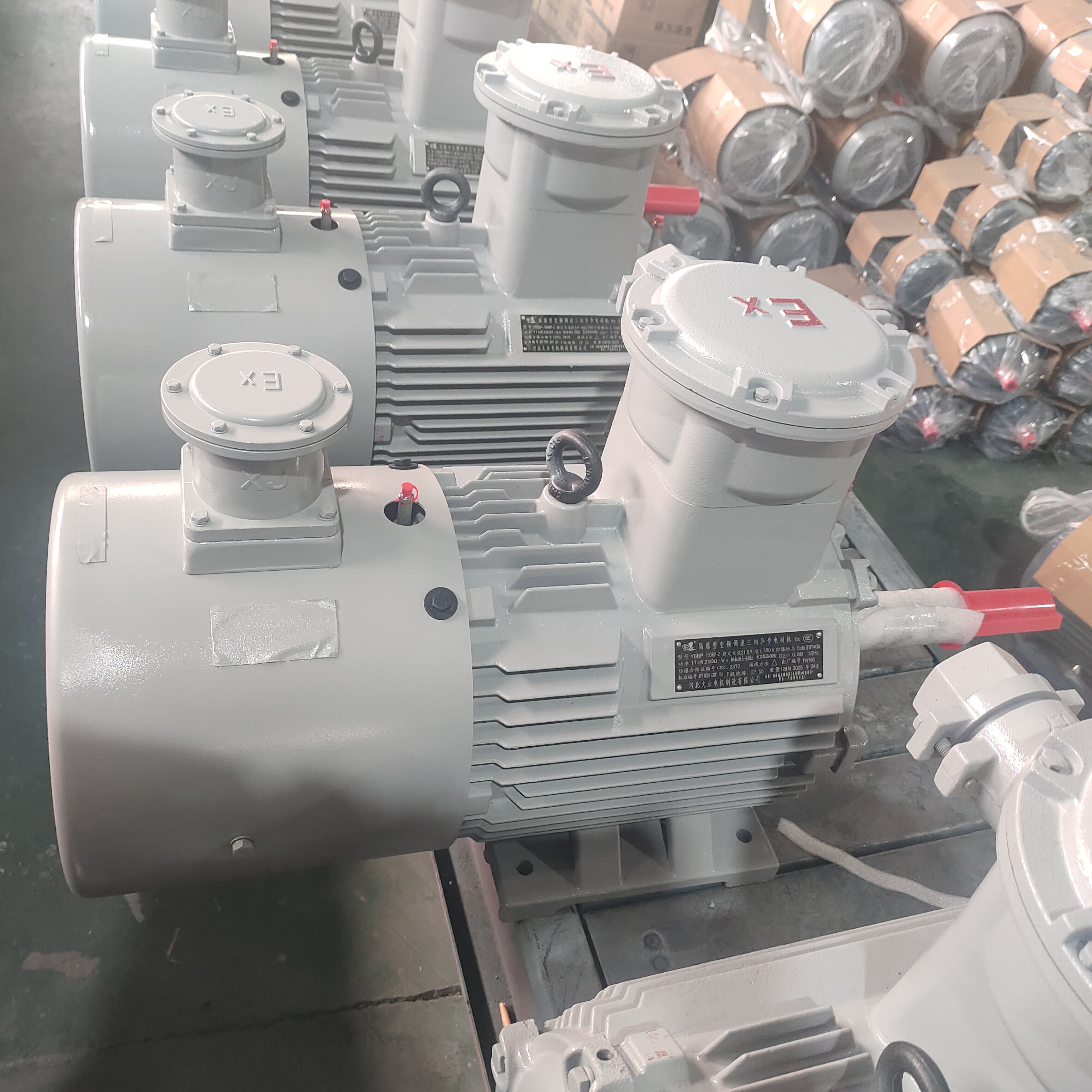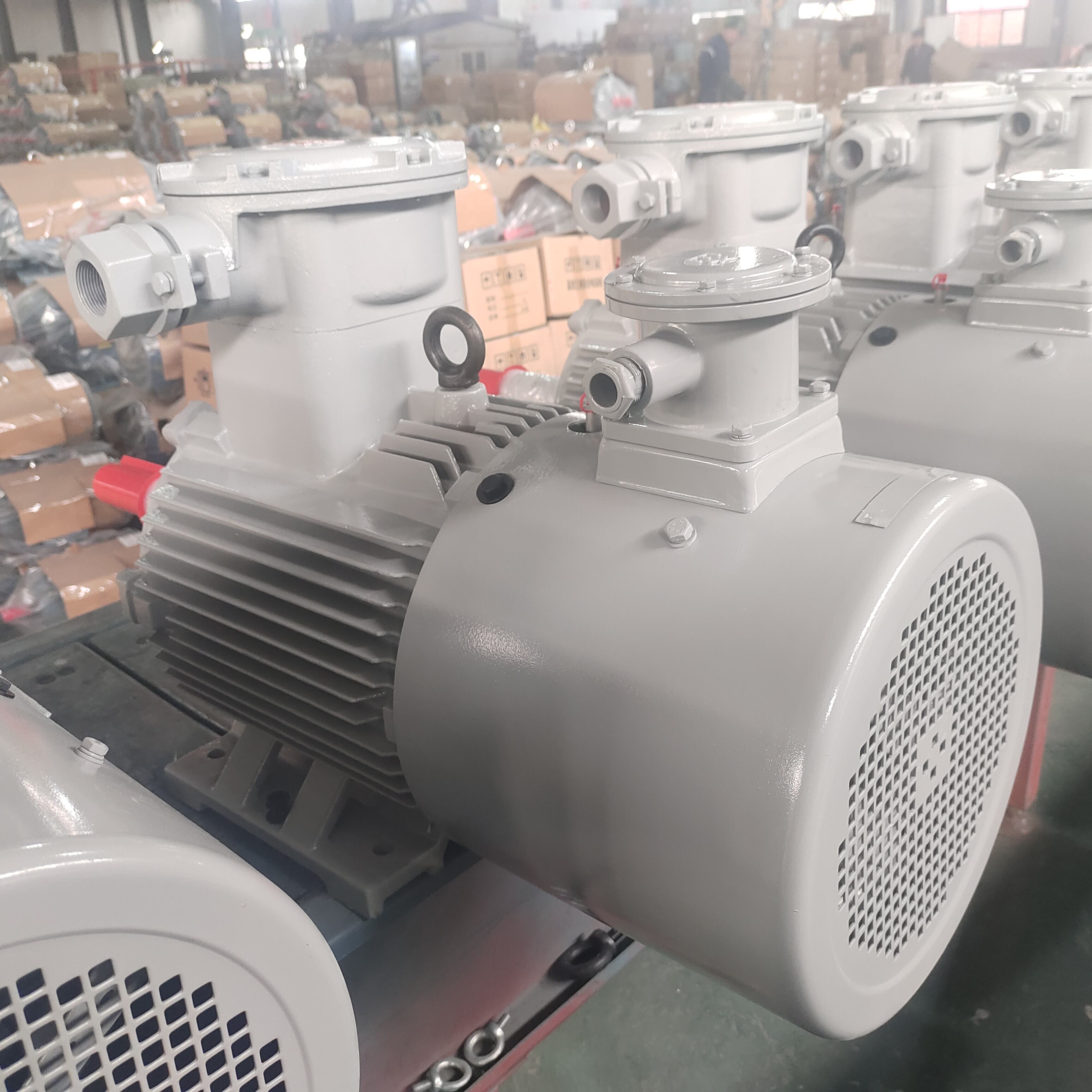Revolutionizing Industrial Operations with Advanced Motor Technology
The industrial landscape is experiencing a remarkable transformation through the integration of variable frequency motor systems. These sophisticated drives are reshaping how facilities operate, offering unprecedented control over motor operations while delivering substantial cost savings. As industries worldwide seek more efficient and sustainable solutions, the adoption of variable frequency motor technology continues to accelerate across manufacturing, processing, and utility sectors.
Modern industrial operations demand precision, efficiency, and reliability - qualities that traditional motor systems often struggle to deliver consistently. This is where variable frequency motor technology steps in, providing a sophisticated solution that addresses multiple operational challenges while opening new possibilities for process optimization and energy management.
Essential Performance Advantages of Variable Frequency Motors
Enhanced Energy Efficiency and Cost Reduction
At the forefront of variable frequency motor benefits is the remarkable improvement in energy efficiency. Traditional motors typically operate at full speed regardless of the actual load requirements, consuming unnecessary power and increasing operational costs. In contrast, variable frequency motor systems adjust their speed and power output to match the specific needs of the application, resulting in significant energy savings.
Industrial facilities implementing variable frequency motor technology commonly report energy savings between 30% and 50% compared to conventional motor systems. These savings are particularly pronounced in applications with variable loads, such as pumps, fans, and conveyor systems, where the motor can operate at reduced speeds during periods of lower demand.
Superior Process Control and Precision
The precise speed control offered by variable frequency motor systems enables unprecedented accuracy in industrial processes. Operators can fine-tune motor speed with exceptional precision, maintaining exact specifications for various applications. This level of control is especially valuable in manufacturing processes where precise material handling and processing speeds directly impact product quality.
Advanced variable frequency motor controllers provide real-time adjustments, responding instantly to changing process requirements. This dynamic control capability ensures consistent product quality while minimizing waste and optimizing production efficiency.

Operational Benefits and System Protection
Extended Equipment Lifespan
Variable frequency motor technology significantly extends the operational life of both the motor and connected equipment. By enabling soft starts and stops, these systems eliminate the mechanical stress associated with traditional motor starting methods. This reduction in mechanical wear translates to fewer maintenance requirements and longer intervals between equipment replacements.
The controlled acceleration and deceleration capabilities of variable frequency motor drives protect mechanical components throughout the system, from bearings and shafts to belts and gears. This comprehensive protection mechanism ensures that industrial equipment maintains optimal performance for extended periods.
Reduced Maintenance Requirements
The implementation of variable frequency motor systems leads to significantly lower maintenance needs across industrial operations. By eliminating the harsh starts and stops characteristic of conventional motors, these systems reduce mechanical wear and tear on all connected components. This translates to fewer repairs, less downtime, and lower maintenance costs over the equipment's lifetime.
Preventive maintenance schedules can be extended due to the reduced stress on system components, allowing maintenance teams to focus on other critical tasks while ensuring reliable operation of motor-driven equipment.
Advanced Features and Industry Applications
Smart Integration Capabilities
Modern variable frequency motor systems come equipped with advanced communication capabilities, enabling seamless integration with industrial automation systems. This connectivity allows for real-time monitoring, data collection, and remote control capabilities, essential features in today's smart manufacturing environments.
The integration potential extends to predictive maintenance systems, where variable frequency motor controllers can provide valuable operational data to help predict and prevent potential equipment failures before they occur. This proactive approach to maintenance further enhances system reliability and reduces unexpected downtime.
Industry-Specific Solutions
Variable frequency motor technology offers tailored solutions for diverse industrial applications. In the manufacturing sector, these systems provide precise speed control for production lines, ensuring consistent product quality. In HVAC applications, variable frequency motors enable efficient temperature control while significantly reducing energy consumption.
The water and wastewater industry benefits from variable frequency motor systems through improved pump control and reduced energy usage. Mining operations utilize these motors to optimize conveyor systems and crushing equipment, achieving better process control while minimizing power consumption.
Environmental Impact and Sustainability
Carbon Footprint Reduction
The adoption of variable frequency motor technology plays a crucial role in industrial sustainability initiatives. By optimizing energy consumption, these systems directly contribute to reducing greenhouse gas emissions associated with industrial operations. Facilities implementing variable frequency motors report significant decreases in their carbon footprint, aligning with global environmental objectives.
The energy efficiency improvements achieved through variable frequency motor systems help organizations meet increasingly stringent environmental regulations while demonstrating their commitment to sustainable operations.
Resource Conservation
Beyond energy savings, variable frequency motor systems contribute to broader resource conservation efforts. The improved control capabilities help reduce water consumption in pumping applications, minimize material waste in processing operations, and optimize the use of raw materials across various industrial processes.
The extended equipment lifespan achieved through variable frequency motor technology also reduces the environmental impact associated with manufacturing and disposing of replacement equipment.
Frequently Asked Questions
What are the primary cost savings associated with variable frequency motor systems?
Variable frequency motor systems generate cost savings through multiple channels, including reduced energy consumption, lower maintenance requirements, extended equipment life, and decreased downtime. Energy savings typically range from 30% to 50%, while maintenance costs can be reduced by up to 40% compared to conventional motor systems.
How does a variable frequency motor improve process control?
Variable frequency motor technology enables precise speed control and torque management, allowing operators to fine-tune processes for optimal performance. The ability to adjust motor speed in real-time ensures consistent product quality while accommodating varying production requirements and load conditions.
What industries benefit most from variable frequency motor implementation?
While variable frequency motor technology offers advantages across all industrial sectors, manufacturing, HVAC, water treatment, and mining operations typically see the most significant benefits. These industries experience substantial improvements in energy efficiency, process control, and equipment longevity through the implementation of variable frequency motor systems.


